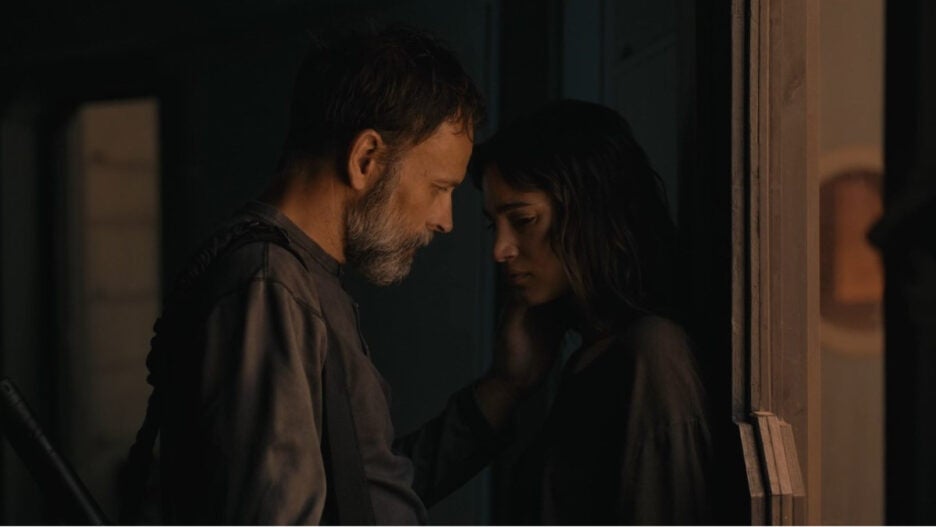A family grapples with the bleak landscape of Mars alongside bigger, more resonant issues
IFC Midnight
Given the fanfare surrounding Sir Richard Branson and Jeff Bezos’ recent forays into space, “Settlers” feels especially timely. Writer-director Wyatt Rockefeller uses his debut film to anticipate the next step after space travel, raising questions about both human sustainability and ownership.
In some ways, the film also calls to mind the current culture wars revolving around America’s origins, with an underlying message about not repeating history.
Unlike Matt Damon’s abandoned scientist in “The Martian,” Reza (Jonny Lee Miller) and Ilsa (Sofia Boutella, “The Mummy”) and their daughter Remmy (Brooklynn Prince, “The Florida Project”) have presumably chosen to dwell in the vast wasteland of the red planet. For nine-year-old Remmy, Earth is merely an idea, a place from which her parents hail. Mars is the only reality she has known, and from the outside looking in, it appears bleak.
Rather than over-the-top echoes of danger, there’s a natural unease to “Settlers” that comes from its stark, dystopian what-if scenarios. Rockefeller wisely abandons the fantasy of settling Mars in favor of contemplating the very real complications posed by life on an unestablished, uninhabited planet. What some might call a slow burn plays out as a very intentional and sober dive into this scenario that avoids wish fulfillment about space travel and interplanetary colonization.
Even before tangible danger appears in the form of a stranger, Jerry (a brilliant Ismael Cruz Córdova, “The Undoing”), the family of three struggles in this unforgiving terrain, eking out a modest life, growing vegetables and taking care of animals for subsistence. Joy is very fleeting and largely nonexistent. The family may comfort each other, but little else does. Lurking in the background is this question of community and its value: As much as Americans celebrate the nuclear family, “Settlers” suggests that there is real emotional currency in human interaction beyond the familial.
Substituting a sparse section of the African continent for Mars, production designer Noam Piper (“Vita & Virginia”) carves out the perfect canvas for Rockefeller — who served in Obama’s EPA before working for an energy start-up in Tanzania — to explore and interrogate the isolation pioneers face alongside other challenges. Jerry’s presence brings up new revelations and issues, including the idea that Reza and Ilsa may be colonizers who seized their home, and that Jerry may be its rightful heir.
As “Settlers” continues, the changing dynamics between veteran soldier Jerry, who’s been trained to kill, and Ilsa rattle Remmy emotionally. The young girl’s response drives Ilsa into challenging Jerry, an action that backfires and leaves Remmy even more vulnerable and alone than before. As Remmy blossoms into womanhood (with the character played in later scenes by Nell Tiger Free, “Game of Thrones”), she and Jerry experience an uneasy dynamic all their own.
Unlike many previous films and TV shows that ponder the possibility of life on Mars, “Settlers” is thoughtful and nuanced, with Rockefeller posing extremely difficult (and resonant) questions about entitlement and even the future of human existence. While Jerry is no saint, some viewers might find it difficult to dismiss his actions as purely selfish. Survival isn’t neatly packaged with a bow on top, a point Remmy must face towards the film’s end.
In a landscape of mindless entertainment, Rockefeller opts to lean into both art and craft to create a film that is simultaneously intellectual and grounded, trusting his actors to use every facet of their talent — physical, mental and verbal — to convey a story that is far more realistic than it might appear on the surface.
“Settlers” opens in US theaters and on demand July 23.
https://youtube.com/watch?v=jeCcJCy0HzM%3Ffeature%3Doembed
Source: Read Full Article











